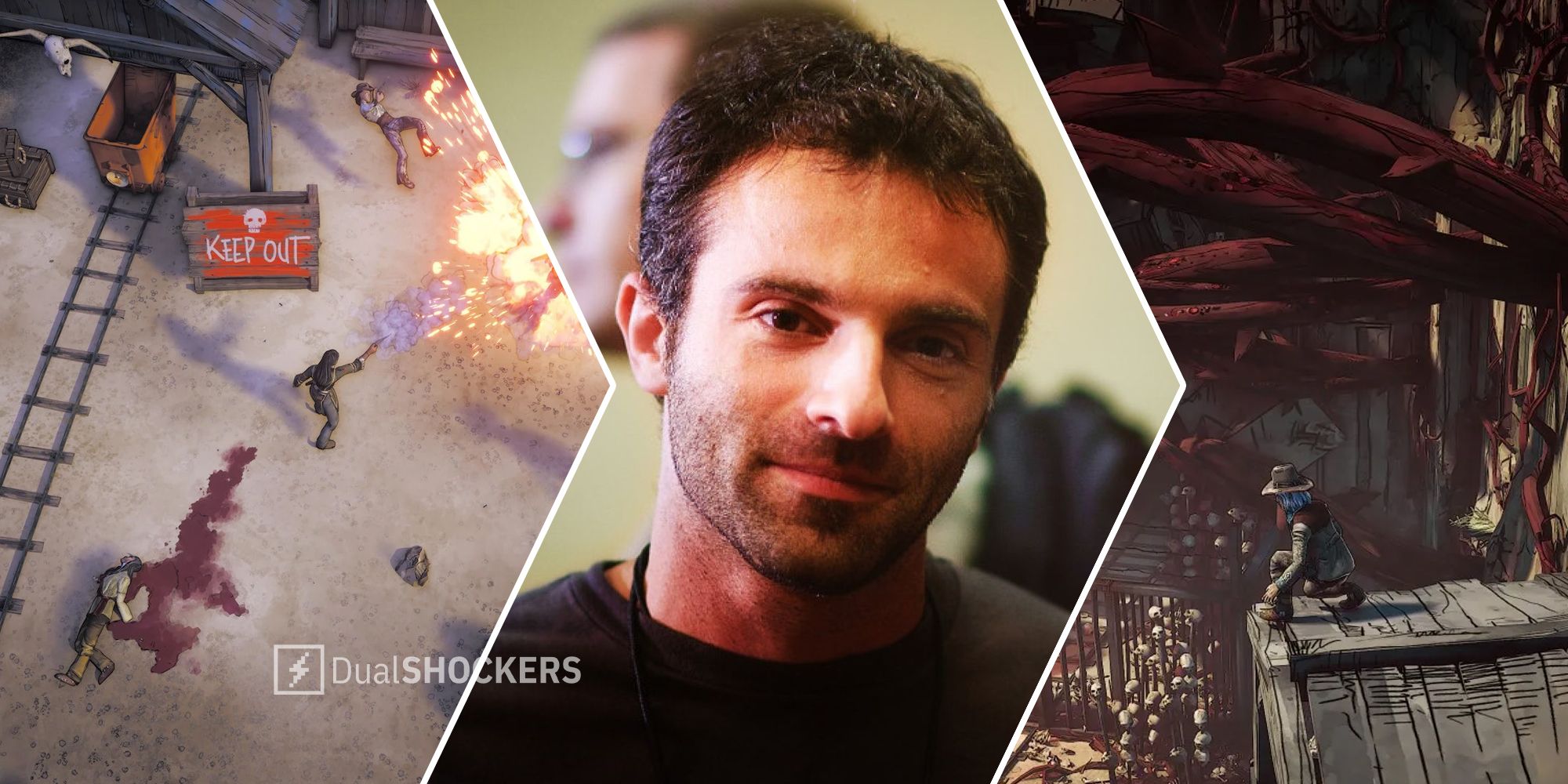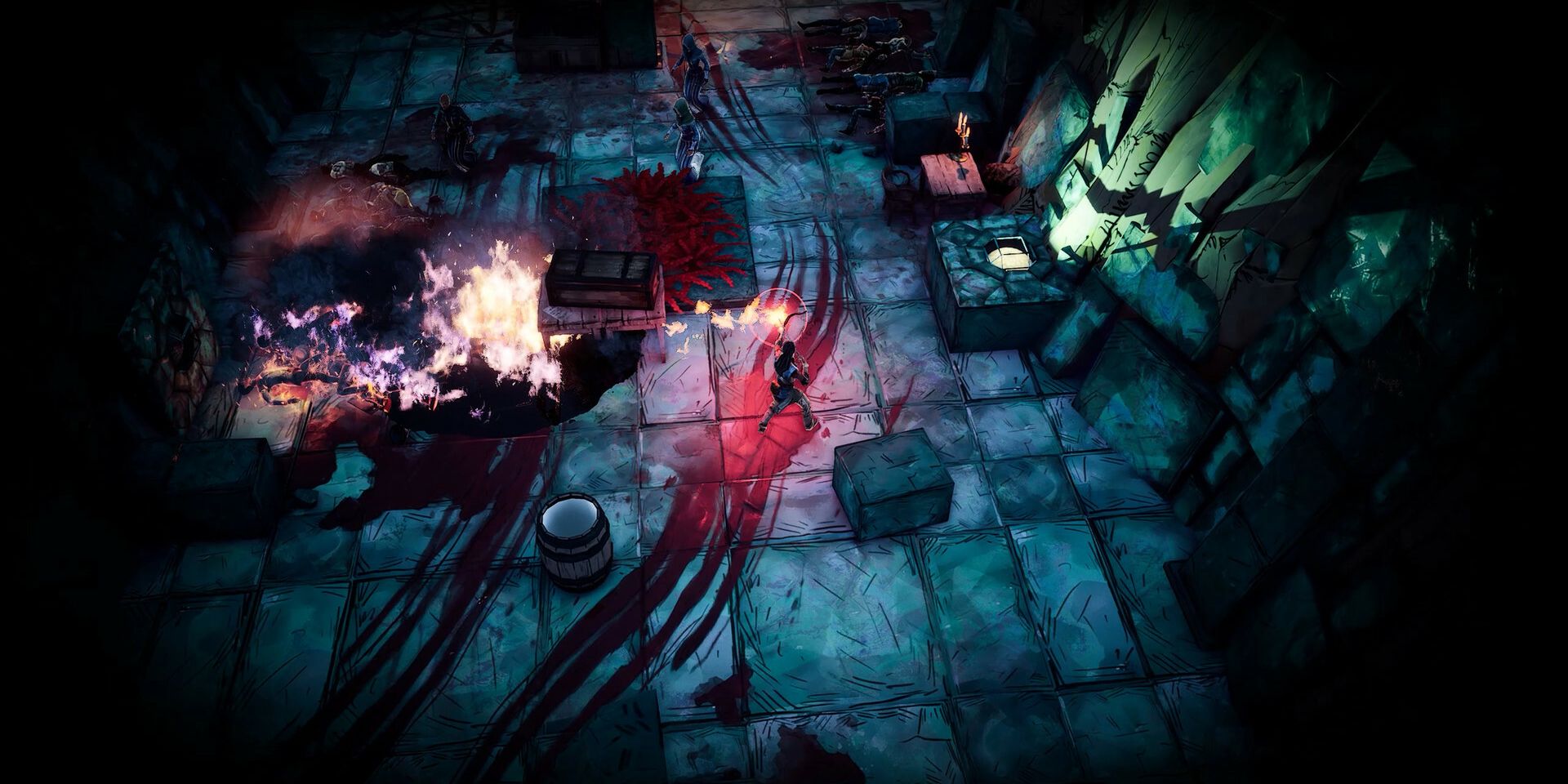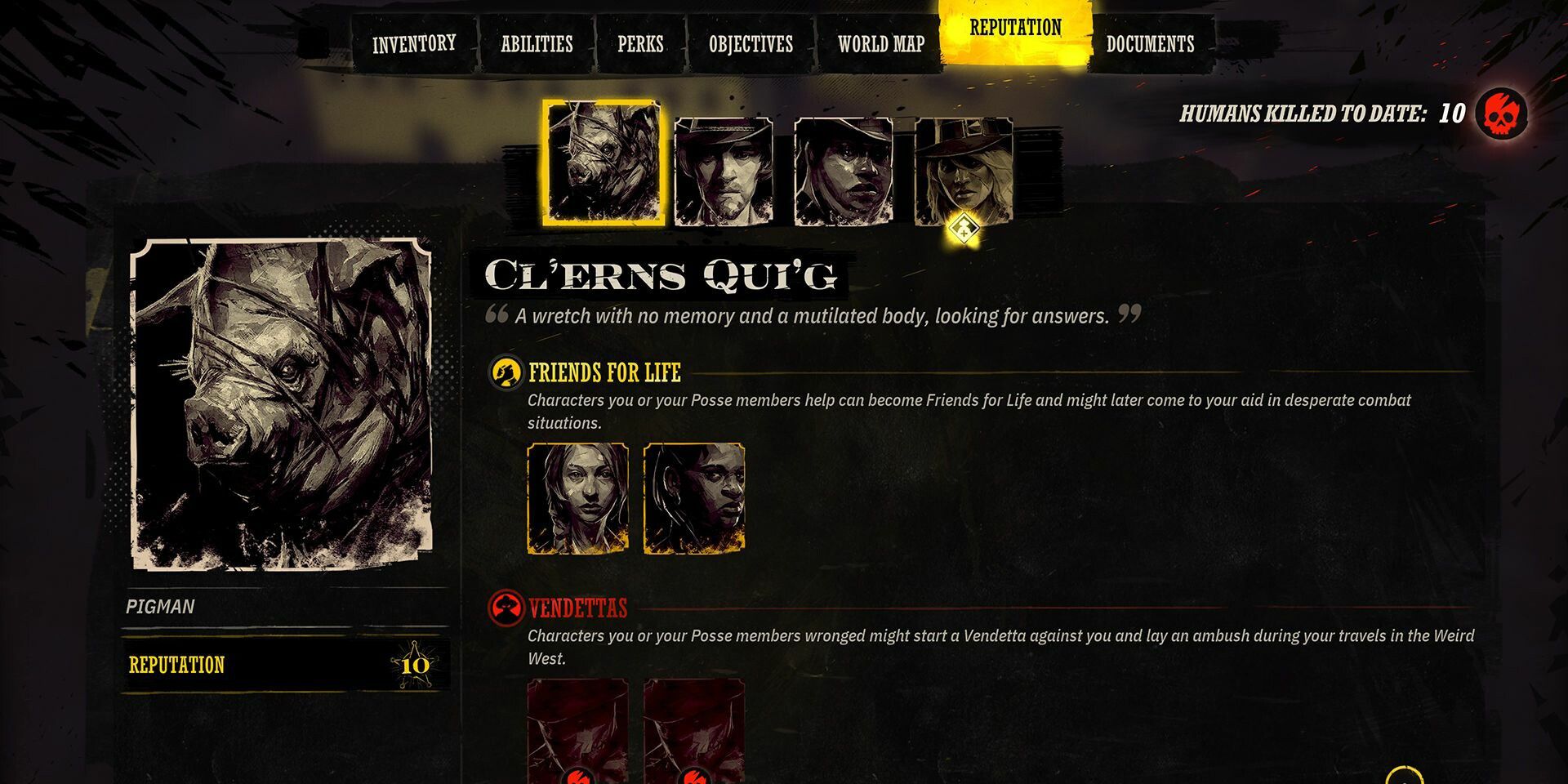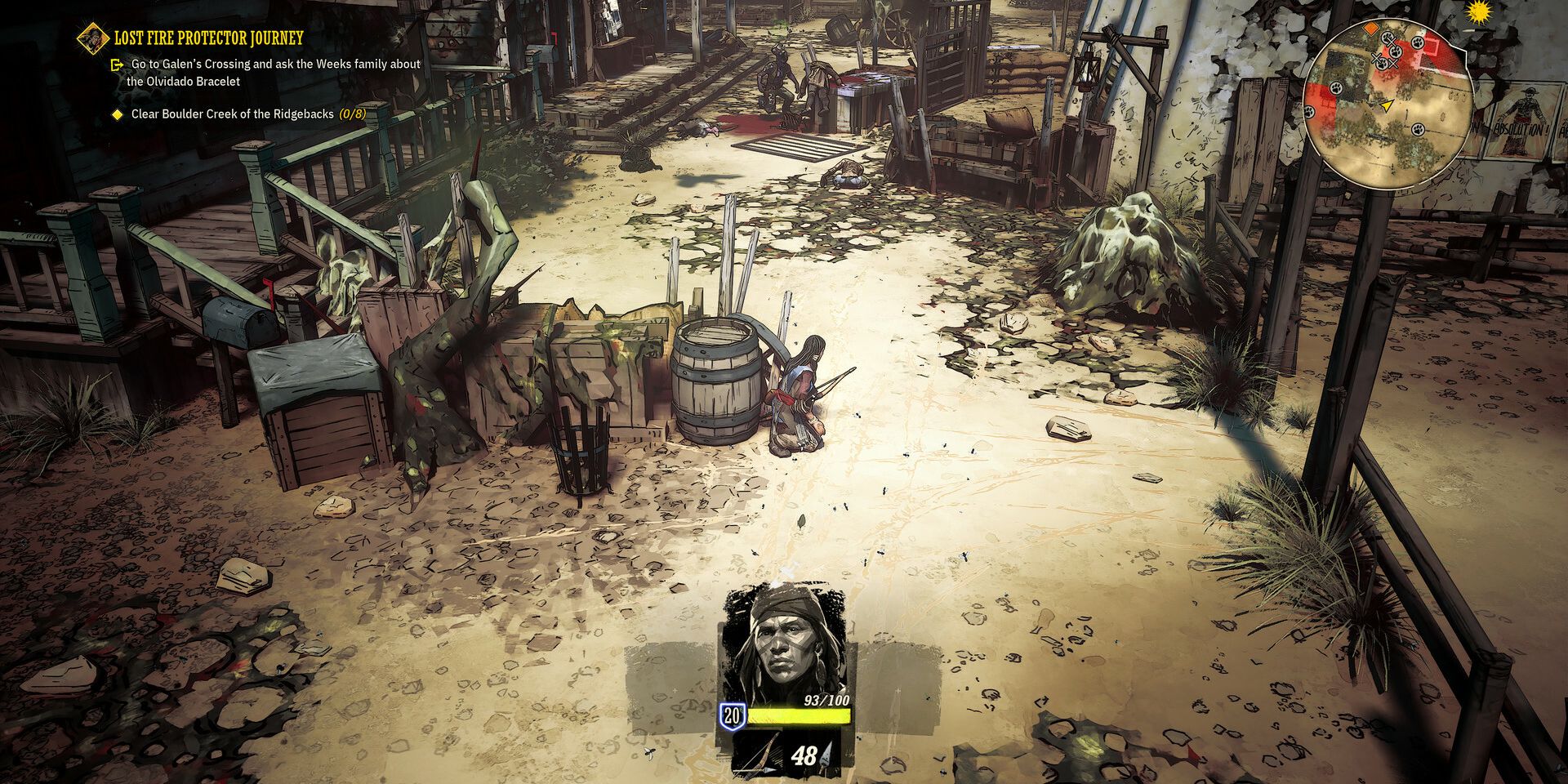Weird West is, as you might imagine, a weird game - a uniquely systems-reliant isometric immersive sim that evokes the original Fallout games if their combat was real-time, as well the excellent Dishonored. The latter really shouldn’t come as a surprise, considering that Dishonored co-creator (and Arkane Studios co-founder) Raph Colantonio made Weird West with his new indie outfit WolfEye Studios.
It wasn’t an entirely smooth launch for Weird West seven months ago. Bugs and other assorted quirkiness meant that the game’s early review scores - while still firmly in the ‘good’ bracket - reflected a game that some felt could’ve used a bit more time in the oven. But Weird West has come a long way in a short space of time. In close collaboration with the community, WolfEye have not only fixed the game, but meaningfully evolved it, adding new systems and mechanics, as well as dozens of little touches that really put the ‘immersive’ into the ‘sim.’
Colantonio is an industry veteran, having made his first game with Arkane Studios, Arx Fatalis, back in 2002. And yet Weird West’s journey has still been a learning experience for him. With Arkane being Bethesda-owned since 2009, and ‘indie’ publishing looking far different back then to what it is today, Colantonio’s hadn’t worked independently in a weird new gaming world where concepts like ‘Early Access’ and ‘Game Pass’ are the norm. In fact, he admits that he had certain prejudices about Early Access, and that looking back Weird West could have benefited from going down that route.
“We've never looked into things like early access because we thought it was just a way for developers to pre-sell their game and start funding it with the money that they make,” he tells me. “But it's much more than that. It's also helping people in the making of the game, which gives you access to a huge diversity of opinions. For our next game, we’re probably going to involve the community at a very early stage.”
Weird West is a systems-driven game - the kind of game that’s vulnerable to a problem faced by many immersive sims, which is that players can engage with those systems to create incredible moments and generate emergent stories, or they can play the game while completely overlooking the game’s systemic magic.
For example, at the start of Weird West you can bury your son, return later to dig up the grave, then use a bone from your son’s body as a weapon to lay vengeance upon the people involved in his death (an emergent B-movie revenge tale right there). It’s a game where towns may prosper or be overrun by ghouls depending on your actions, and where random NPCs you save earlier in the game may return later to save you in a shootout - perhaps even sacrificing themselves in the process. It runs deep, but Raph suggests that the future of these games is to ‘keep the depth, and remove the complexity.’
“I think there's the game’s core and the presentation, and sometimes the presentation prevents people from seeing the core,” says Raph. “Some players are not used to being left alone with a bunch of systems and figuring out what they have. We’ve done our best to tutorialise Weird West, but I think we can do better, and by very early testing with the community we can reach that in better ways and include people from the get-go.”
Instead of rueing Weird West’s missed opportunity to evolve as an Early Access game alongside the community, Raph and WolfEye moved quickly following Weird West’s launch to make up for lost time with the game’s following. The developers set up a suggestions board for Weird West, where the community (and anyone who visits the page, for that matter) can vote on and discuss new features to be added to the game.
"“I personally don’t like the buffet-type business model, but I can’t go against it."
With the help of this board, significant updates were added - from major things like a much-improved stealth system, alternative firing modes, and a Reputation tab where you can keep track of your reputations and relationships in the world, to finer details. For example, based on a much-upvoted suggestion, when you knock out an enemy ub Weird West and throw them on a bed, their friends will just assume that that enemy is asleep rather than automatically knowing that they’ve been knocked out. Upcoming user-suggested changes to the game include the ability to switch freely between the characters once you complete the story, as well as a sandbox mode that lets you freely roam the west (with an increased number of activities and random quests planned for that mode down the pipeline).
The game’s ongoing evolution reflects Raph and WolfEye’s open-ended and open-minded approach to game development. “We are open to anything,” he begins. “The game is showing that it has a long tail, and we definitely have more stuff in the oven. I don’t know for how long - we’ve got three big things planned right now and then after that it’s kind of like ‘let’s see what happens.’”
In the time since Weird West entered development some four years ago, Microsoft’s Game Pass has risen up as the ‘Netflix of Gaming’ that many had been anticipating for years, and some months before Weird West’s launch, the game was unveiled as a Day One Game Pass title. A lot of independent developers - particularly new studios - have praised Game Pass as a great way of getting more eyes on their games, while at the same time not having to worry too much about a game’s marketing or sales. Weird West has seemingly done well on Game Pass, with nearly one million downloads according to Raph, but despite this he doesn’t believe such subscription-based services are necessarily a good thing.
“I personally don’t like the buffet-type business model, but I can’t go against it, so as a company we have to find what it means to navigate a world where it’s going to be a subscription buffet for everybody,” Raph tells me. “It removes investment from the consumer. It’s true for music as well. I used to buy a CD for one song on the album, but listening to that album again and again I’d find that the song I used to hate would now be my favourite on the album. On Spotify it’s like five seconds, ‘I don’t like the intro,’ next.”
But with an independent studio under his charge, Raph appreciates that he can’t let idealism get in the way of pragmatism, and would even put his next game on Game Pass “if the money is right.” He concludes: “At the end of the day, it’s a matter of what serves the game best and what serves our ability to make it.”
The myriad updates to Weird West speak to the game’s modular infrastructure, in the sense that the game is relatively easy to add layers of mechanics and systems to. This is because Weird West was always designed with modding in mind, and one of the major upcoming updates will unleash the game’s robust modding tools to the community. “I’ve never done a game that has modding, so it was always a kind of personal desire that I had,” says Raph. “You can make your entire own story if you want - whether using your own models or our own models or some extra models that we’ll be releasing as well. I think people are going to be pleased and have fun with it.”
Weird West’s development has, like its narrative structure, involved multiple journeys. There was its journey to development and its journey since, which has opened Colantonio’s eyes to the value of community involvement, especially for the kind of complex systems-based games that he specialises in. The game’s own journey shows that if a developer has a vision that speaks to the community, then they will always be ready to step up and help see that game’s vision realised - before or after release.




